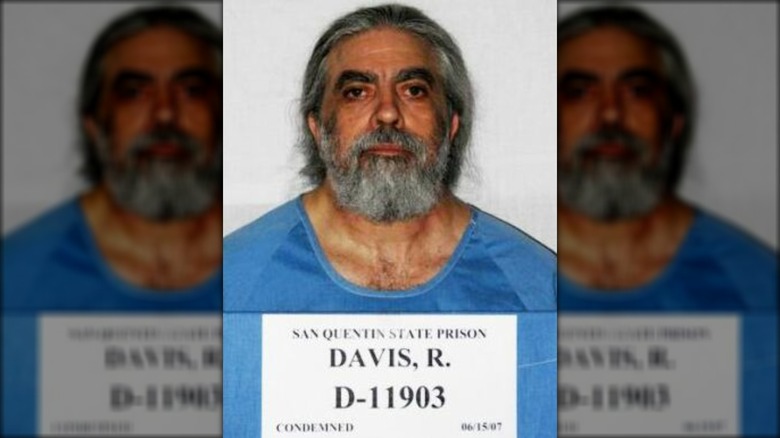How The Murder Of Polly Klaas Changed The Criminal Justice System Forever
The murder of 12-year-old Polly Klaas, who was snatched from her home in Petaluma, California in 1993, was a story that at first gripped and later traumatized the nation, leaving a lasting impact that can be felt in the American criminal justice system 30 years later.
On October 1 that year, Klaas was having a sleepover at home with two friends, while her mother was asleep in the next room. During the night, a man armed with a knife broke into the residence and kidnapped Klaas before disappearing into the night. No trace of the missing girl was found for two months, during which time a huge manhunt and search for Klaas, as well as a police investigation that made headlines in the press across the country. Eventually, a palm print discovered at the crime scene led investigators to local man Richard Davis, a known criminal who was on parole. He confessed to the kidnapping and killing of Klaas and brought police to where he had buried her body. It was revealed that Davis had followed Klaas home from a local park, and staked out the house before choosing his moment for the abduction.
As experts have pointed out, Klaas' murder and the high-profile trial of her killer Richard Davis had a profound effect on U.S. crime policy at a time when average people felt increasingly endangered in their everyday lives. As a result, in the aftermath, many states implemented a "three-strikes law," which enforced life sentences on three-time repeat offenders.
The trial of Richard Davis
Prior to kidnapping and murdering Polly Klaas, Richard Davis was revealed to be a multiple offender with a history of violent crimes behind him, including a previous kidnapping of a woman. The legal analyst Steven Clark has described Davis as a "career criminal" (per ABC 7 News), a fact that greatly increased the suffering of Polly Klaas' loved ones; surely a known criminal ought to have already behind bars, instead of walking the streets with the opportunity to strike again? Following Davis' arrest, a lengthy police investigation took place, and he was put on trial in 1996, during which he was found guilty of the murder of Klaas.
But Davis has managed to cause even more outrage in the courtroom by making obscene gestures to members of the press and, in a final statement, claiming that the victim had told him that she had been molested by her father, causing Marc Klaas to lunge and swear at the murderer before being removed from the room. Judge Thomas C. Hastings told Davis: "Mr. Davis, this is always a traumatic and emotional decision for a judge. You made it very easy today by your conduct," per The New York Times.
A campaign for victims' rights
Following Richard Davis' disturbing and foul behavior in the courtroom the murderer became a symbol of the corrupt character of recidivists across the nation, whom it was increasingly believed were not being dealt with in any meaningful way by the criminal justice system, which many found to be too lenient in its sentencing. In the aftermath of the trial, Polly Klass' father Marc became a central figure in a campaign to make sentencing more fitting in their punishments when it came to unrepentant repeat offenders such as Davis.
The 1990s thereafter saw politicians from across the political spectrum promising to be tough on crime, with policies like the three-strikes law implemented in numerous states despite remaining controversial with crime experts. According to KATU, Davis' role in catalyzing the three-strikes law in California has had the unforeseen effect of invoking the ire of other people in prison, who have spit on him or assaulted him in other ways. With capital punishment suspended in the state, "Rick" Allen Davis remains listed as "condemned" at San Quentin State Prison, according to the California Department of Corrections and Rehabilitation.
Pushback against the three-strikes law
That the sensationalism arising from widespread revulsion following the murder of Polly Klaas had a lasting effect on the criminal justice system is no surprise, with the case arguably having a greater effect on how criminals are dealt with in America more than any other single murder in living memory. But in recent years other members of Klaas' family have grown uncomfortable with the laws that came into force as a result of the 12-year-old's killing and the campaigning of her father, most notably her sisters, who in 2020 published an article in The LA Times calling for the reversal of states' various versions of the three-strikes law, calling them "unjust."
Addressing the injustices perpetuated by harsher sentencing policies such as the three-strikes law, the sisters argued: "People imprisoned under three-strikes and other mandatory sentencing laws are overwhelmingly Black and Latino, and they are also often mentally ill or homeless. Over the last 26 years, three-strikes laws have significantly contributed to mass incarceration in the United States and have exacerbated the systemic racism inherent in our justice system." In the same article, the authors call for an end to the severe sentencing that came into force across America in the aftermath of their sister's death, and argue that rehabilitation programs have been shown to reduce recidivism rates more effectively than time spent in dangerous prisons and the supposed deterrent of longer sentencing.



